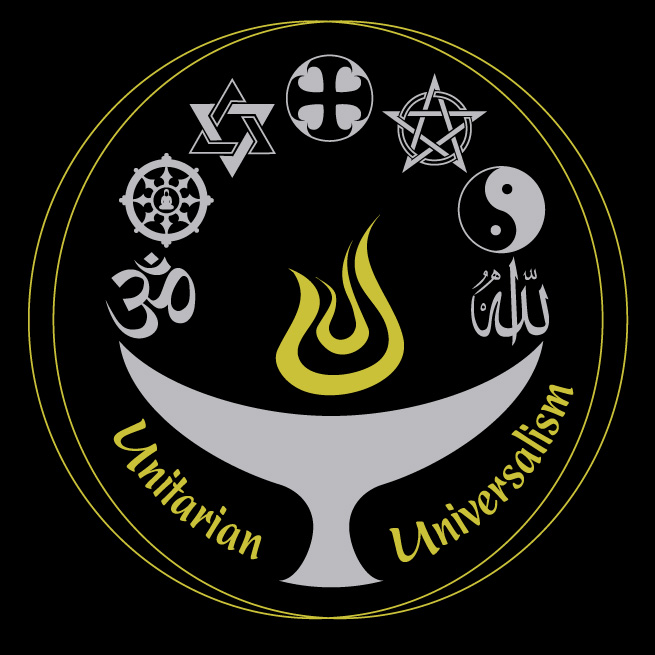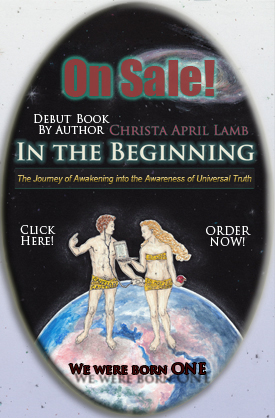Unitarian Universalists

Unitarian Universalism is a centuries-old, free thinking religion guided by shared values. At its core, this faith emphasizes the worth and value of every person and the interconnectedness of all things.
| Quick Facts | | History | | Famous Members | | Connection to other Beliefs | | Beyond Facts |
QUICK FACTS
Brief explanation:
Unitarian Universalists are unique in the way that adherents do not share a common spiritual belief or idea of how God is to be represented. They believe that as people they should find God in their own way. Although based on Protestant Christianity, it has become inclusive and allows members to practice Unitarian Universalism with whatever religious core base they so choose. What makes them Unitarian Universalists is the sense of community, the sense of belonging and commonality of mutual understanding and respect.
Unitarian Universalists have seven core principles to which they lead their life by:
o The inherent worth and dignity of every person
o Justice, equity and compassion in human relations
o Acceptance of one another and encouragement to spiritual growth in our congregations
o A free and responsible search for truth and meaning
o The right of conscience and the use of the democratic process within our congregations and in society at large
o The goal of world community with peace, liberty, and justice for all
o Respect for the interdependent web of all existence of which we are a part.
Followers:
There are over a 250,000 Unitarian Universalists in North America, with another 100,000 in Europe. There are also Unitarian Universalists in North India and The Philippines, but number less than 10,000.
Unitarians follow the worship format of the puritan church by:
o Gathering Sundays in congregation
o Lighting the Chalice – to symbolize both the sacrament being shared with the world community and the sacrifice and commitment of their followers
o Listening to a sermon by the church leader
o Readings from texts but not necessarily the bible
o Observing Holidays from Christian, Jewish, and Pagan Calendars
HISTORY
Their history starts with Unitaria Religio in 1638. The Polish Brethren began grouping Unitarians with Arians and others who split from the Polish Calvinist Church eventually becoming the Unitarian Church. The Unitarian Church philosophy was against the Sacred Trinity Doctrine, they did not consider Christ the son of God and rejected the concept of the virgin birth. They also rejected the Calvinist ideal of predetermination. Many Countries would not tolerate a Christian Church that did not acknowledge such tenets as the Trinity or the Virgin Birth. So Unitarians spread out from Poland after 1660 when a decree was issued to the Unitarians to either conform to societal standards of worship, or be cast out of the Polish commonwealth. A majority went to Transylvania where modern day Romania is. They also found safe haven in England during the Age of Enlightenment and Reason in the 18th century. Unitarians also found safe haven in the newly founded United States of America later in the same period.
At this same time in America, a minister named Adams Streeter formed The Universalist Christian Church in 1778. Believing in the concept that if God created all life and all people, God would not create a person knowing that the person was destined for hell and still be a loving God, therefore, it was concluded that all people must be destined for salvation. Within Universalism there was debate to the purpose of hell or if hell even existed. A quest for spiritual growth and enlightenment ran counter to the Christian ideal that they needed to obey the authority of biblical texts or be damned to Hell. They believed it was their divine right not to have God plan their existence and everyone has the right to seek their own destiny to achieve personal salvation. This concept of universal salvation started the driving force in the northern churches to end slavery in America in the 19th century. Universalism peaked in the 1830s when it was reported to be the 9th largest Christian demonization in the United States.
Although different in approach Unitarians and Universalists still agreed on several key issues of non predetermination and what constituted what made something sacred and what made something mundane, in doing so they helped to question the purpose and role the churched played in American and worldly society. The two branches became as one in May 1961 forming the Unitarian Universalist Association. Although both designed from Christian protestant beliefs systems, Unitarian Universalists draw from the teachings and philosophies of Humanism, Gaiainsm, Judaism, Hinduism and Buddhism along with Atheism and Agnosticism.
Unitarian Universalists believe that the role of the Church is to be a focal point of the community and that no one should be turned away, regardless of what they do or do not believe in.
FAMOUS UU MEMBERS
A number of noted people have considered themselves Unitarians, Universalists, and following the merger of these denominations in the US and Canada in 1961, Unitarian Universalists. Additionally, there are persons who, because of their writings or reputation, are considered to have held Unitarian or Universalist beliefs. Individuals who held unitarian (nontrinitarian) beliefs but were not affiliated with Unitarian organizations are often referred to as “small ‘u’” unitarians. The same principle can be applied to those who believed in universal salvation but were not members of Universalist organizations. This article, therefore, makes the distinction between capitalized “Unitarians” and “Universalists” and lowercase “unitarians” and “universalists”.
It should be noted that the Unitarians and Universalists are groups that existed long before the creation of Unitarian Universalism. In particular it must be noted that the cohort of prominent Unitarians from the American colonial and early national eras would almost certainly not subscribe to Universalism; these people were essentially radical Protestant Christians. Additionally, the merger did not eliminate Unitarian and Universalist congregations, especially outside the US. And even in the US there are congregations which are strictly Unitarian or Universalist, and even those which maintain dual affiliation (e.g. Unitarian and Quaker). Transcendentalism was a movement that diverged from contemporary American Unitarianism but has been embraced by later Unitarians and Unitarian Universalists.
Abigail Adams (1744-1818)
James Luther Adams (1901-1994)
John Adams (1735-1826)
John Quincy Adams (1767-1848)
Amos Bronson Alcott (1799-1888)
Louisa May Alcott (1832-1888)
Horatio Alger, Jr. (1832-1899)
Arthur J. Altmeyer (1891-1972)
Susan B. Anthony (1820-1906) (also a Quaker)
Arius (256-336) (the original ‘small-u’ unitarian)
E. Burdette Backus (1888-1955) (originally a Universalist)
Roger Nash Baldwin (1884-1981), founder of ACLU
Adin Ballou (1803-1890) (Universalist)
Hosea Ballou (1771-1852) (Universalist and unitarian)
P. T. Barnum (1810-1891) (Universalist)
Clara Barton (1821-1912) (Universalist)
Bela Bartok (1881-1945) [Béla Bartók]
Alexander Graham Bell (1847-1922)
Henry Bergh (1811-1888), founder of the ASPCA
Tim Berners-Lee (b. 1955)
Ambrose Bierce (1842-1913 or 1914) (unconfirmed)
James Blanchard (b. 1942)
John Bowring (1792-1872)
Ray Bradbury (b. 1920)
Andre Braugher (b. 1962)
Antoinette Brown (1825-1921)
Olympia Brown (1835-1926) (Universalist)
Orestes Brownson (1803-1876) (Universalist)
Percival Brundage (1892-1979)
Luther Burbank (1849-1926)
Celia Burr Burleigh (1826-1875)
Robert Burns (1759-1796) (unitarian)
John C. Calhoun (1782-1850)
Alice Cary (1820-1871) (Universalist)
Phoebe Cary (1824-1871) (Universalist)
Joseph Chamberlain (1836-1914)
William Ellery Channing (1780-1842)
Lydia Child (1802-1880)
Frances Power Cobbe (1822-1904)
William Cohen (b.1940)
Samuel Taylor Coleridge (1772-1834)
Moncure Daniel Conway (1832-1907)
e e cummings (1894-1962)
Nathaniel Currier (1813-1888)
Charles Darwin (1809-1882)
George de Benneville (1703-1793) (Universalist)
Charles Dickens (1812-1870)
Robert Dillman (b. 1967)
Dorothea Dix (1802-1887)
Paul Douglas (1892-1976) (also a Quaker)
Charles William Eliot (1834-1926)
Ralph Waldo Emerson (1803-1882) (Transcendentalist)
Sophia Fahs (1876-1978)
Fannie Farmer (1857-1915)
Millard Fillmore (1800-1874)
Eliza Follen
John Murray Forbes (1813-1898)
Robert Fulghum (b. 1937)
Buckminster Fuller (1895-1983)
Margaret Fuller (1810-1850) (Transcendentalist and Unitarian)
Elizabeth Gaskell (1810-1865)
William Godwin (1756-1836) (Sandemanian)
Horace Greeley (1811-1872) (Universalist)
Edvard Grieg (1843-1907)
Nina Grieg (1845-1935)
Frances Harper (1825-1911)
Thomas Lake Harris (1823-1906) (Universalist)
Charles Hartshorne (1897-2000)
Nathaniel Hawthorne (1804-1864) (Transcendentalist)
Samuel Hoar (1778-1856)
Edith Holden (1871-1920)
Oliver Wendell Holmes, Jr. (1841-1935)
Oliver Wendell Holmes, Sr. (1809-1894)
Mark Hopkins (1813-1878)
Julia Ward Howe (1819-1910)
Thomas Jefferson (1743-1826) (unitarian, once wrote that if there were a Unitarian church near him, he would become a member, but attended an Episcopalian church.)
Julian of Norwich (c.1342-c.1413) (proto-universalist)
Thomas Starr King (1824-1864)
Chuck Knipp (also a Quaker)
Ray Kurzweil (b. 1948)
Lewis Howard Latimer (1848-1928)
Margaret Laurence (1926-1987)
Viola Liuzzo (1925-1965)
Mary Livermore (1820-1905) (Universalist)
Henry Wadsworth Longfellow (1807-1882)
Amy Lowell (1874-1925)
James Russell Lowell (1819-1891)
Horace Mann (1796-1859)
Harriet Martineau (1802-1876)
James Martineau (1805-1900)
Herman Melville (1819-1891) (Transcendentalist)
Maria Mitchell (1818-1889)
Angela Moffett (b. 1968)
Samuel F. B. Morse (1791-1872)
John Murray (1741-1815) (Universalist)
Isaac Newton (1642-1727) (unitarian)
Florence Nightingale (1820-1910)
Keith Olbermann (b. 1959)
Mary White Ovington (1865-1951)
Theodore Parker (1810-1860)
Linus Pauling (1901-1994)
Sylvia Plath (1932-1963)
Beatrix Potter (1866-1943)
Joseph Priestley (1733-1804)
Olive Higgins Prouty (1882-1974)
George Pullman (1831-1897) (Universalist)
Josiah Quincy (1744-1777) (Universalist)
Christopher Reeve (1952-2004)
James Relly (c.1722-1778)
Paul Revere (1735-1818)
Malvina Reynolds (1900-1978)
George Ripley (1802-1880)
Rammohun Roy (1772-1833) (also a Hindu)
Benjamin Rush (1745-1813) (universalist)
Albert Schweitzer (1875-1965) (he was a honorary member of the Church of the Larger Fellowship, though)
Charles E. Scripps (b. 1920)
Pete Seeger (b. 1919)
Rod Serling (1924-1975)
Michael Servetus (1511-1553)
Adlai Stevenson (1835-1914)
Lucy Stone (1818-1893)
Robert Stout (1844-1930)
Emily Stowe (1813-1903)
Gilbert Stuart (1755-1828)
William Howard Taft (1857-1930)
Henry David Thoreau (1817-1862) (Transcendentalist)
Amos G. Throop (1811-1894) (Universalist)
Clyde Tombaugh (1906-1997)
Mary Augusta Ward (1851-1920)
Daniel Webster (1782-1852)
Josiah Wedgwood (1730-1759)
Paul Dudley White (1886-1973)
Walt Whitman (1819-1892) (Transcendentalist)
Earl Morse Wilbur (1886-1956)
Mary Wollstonecraft (1759-1797)
Frank Lloyd Wright (1867-1959)
N.C. Wyeth (1882-1945)
Owen D. Young (1874-1962) (Universalist)
Whitney Young (1921-1971)
Source: Wikipedia (http://en.wikipedia.org/wiki/List_of_Unitarian_Universalists; viewed 6 July 2005)
CONNECTION TO OTHER BELIEFS
Coming soon!
Back To The Top
BEYOND FACTS
Coming soon!









